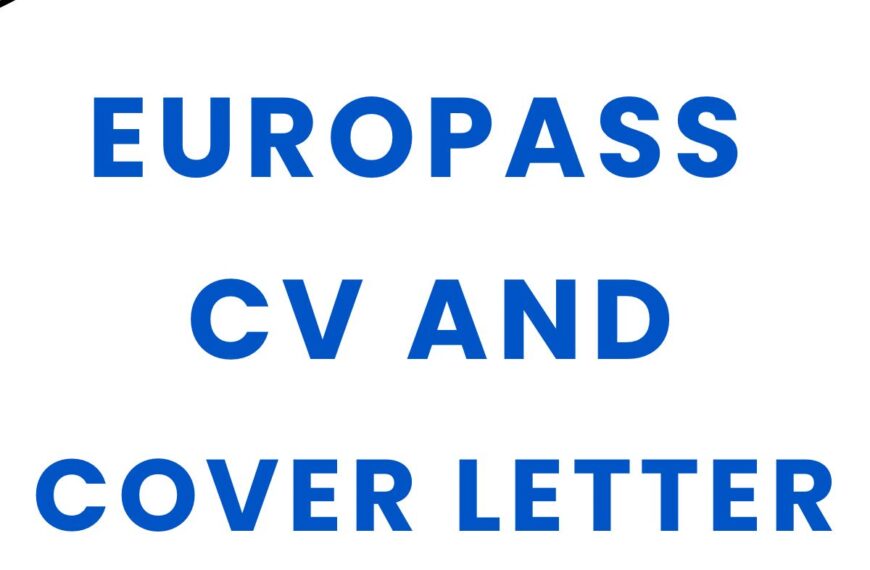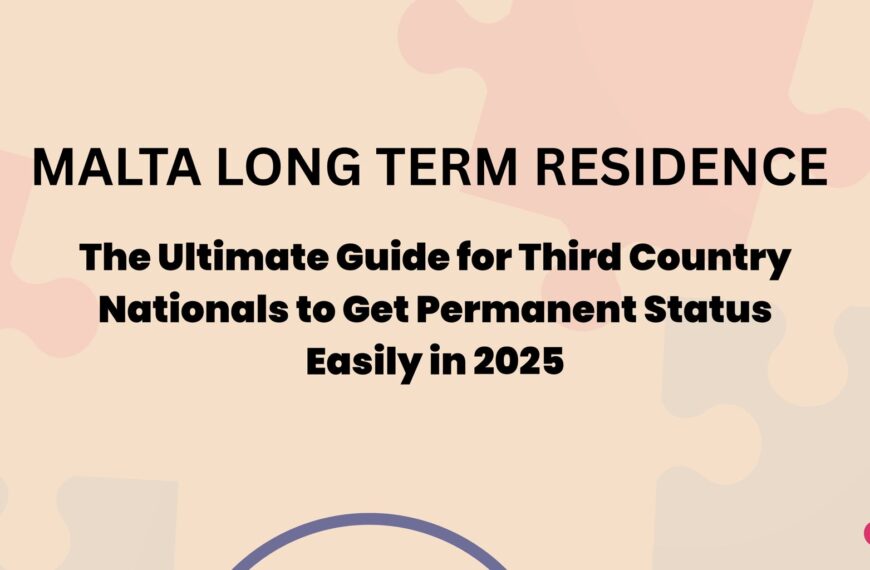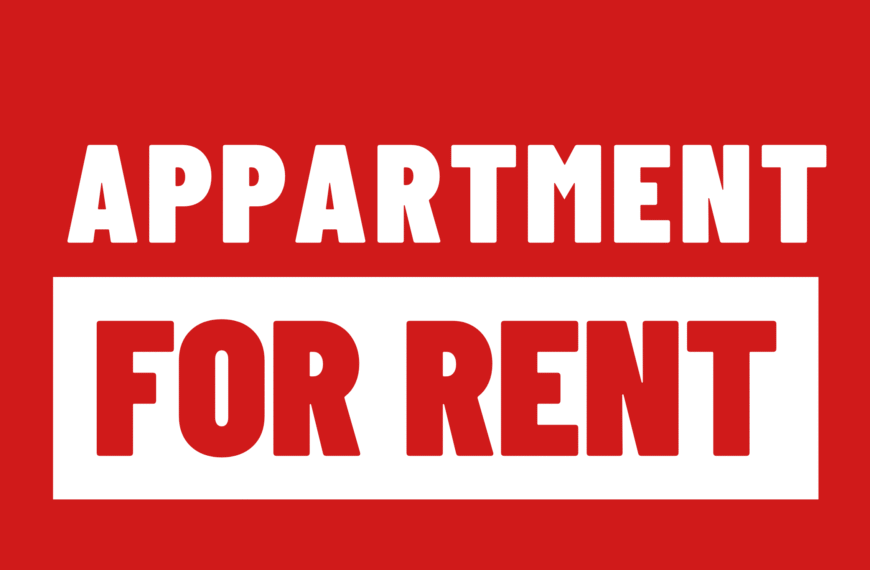
Jobs In Malta : How to Get a Job as a Third-Country National
Malta is a very small island in the middle of the Mediterranean sea , has become a popular destination for foreign workers. With its growing economy, sunny weather and English speaking environment it attracts every professionals and general workers from all over the world. But for those coming from outside the European Union (known as Third Country Nationals, or TCNs) the process of finding work in Malta is more complicated than for EU citizens.
If you are a TCN and want to build a career in Malta you need to know the rules, paperwork and practical steps that will lead you to a job. This article will guide you through the process in a step by step way and also give you tips based on real experiences of foreign workers.
Understanding the Basics: Who is a Third Country National?
A Third Country National is simply anyone who is not a citizen of the European Union (EU), the European Economic Area (EEA) or Switzerland. people from Nepal, India, the Philippines, Bangladesh, Nigeria or any other non-EU country are a TCN in Malta.
Why does this matter? Because the rules for working in Malta are different for EU citizens and non eu citizens. EU citizens can move and work freely across EU member country but Non Eu Citizens need to go through an application process for a work permit and residence card.
Step 1: Research the Maltese Job Market(Jobs In Malta)
Before making use of for jobs, it’s critical to realize what form of possibilities are clearly to be had for TCNs. Malta has a call for for both professional and unskilled employees. Here are some industries in which overseas people are frequently hired:
Construction and Manual Labor: Malta’s constructing increase has created steady call for for workers like masons, metallic fixers, shuttering carpenters, electricians, and fashionable production worker’s.
Hospitality and Tourism: With hundreds of thousands of vacationers traveling Malta each 12 months, hotels, restaurants, and bars constantly want staff inclusive of waiters, chefs, cleaners, and receptionists.
Healthcare and Caregiving: Malta faces a shortage of nurses, caregivers for the aged, and healthcare assistants.
IGaming and IT: Malta is a hub for online gaming and IT services, IT professional and experts came to work throughout the globe.
Domestic Work: Families regularly lease live-in helpers or cleaners from TCN backgrounds.
Researching the process marketplace will save you time and help you focus on industries wherein your chances of being employed are higher.
Step 2: Prepare Your Documents
To work in Malta, you must finally apply for the same permit, which allows you to live and work in the country. But before that, you should prepare some documents to lubricate your job application. These usually include:
Update CV (Europass CV): Employers in Malta prefer a simple Europass CV, usually two pages long, and your skills, work experience and education.
Cover letter: A small letter presents and explains why you want a job.
Education Certificate: If you apply for professional roles as a health care system or IT, certified copies of your diploma or degree may be required.
Work experience paper: Evidence from your former employers can strengthen your application.
Valid Passport: Make sure your passport has a validity of at least one year.
Tip: If your certificates are not in English, it is a good idea to officially translate them.
Step 3: Start Your Job Search
There are many ways you can find work as TCN in Malta:
Online job portals
Websites such as Jobsplus, keepmeposted, Maltapark and LinkedIn regularly post vacancies. Some agencies also post a job directly on their websites.
Recruitment agencies
Many recruitment agencies in Malta are specialized in connecting foreign workers with employers. They often help with papers, although you should be careful and avoid fraud.
Network
Sometimes it is never announced publicly. If you know that a person is already working in Malta, you can ask for clients or recommendations from them. Word-off-Muth can be very powerful in small countries like Malta.
Direct application
You can contact companies directly by sending them CV and cover letter. For example, construction companies or care houses often accept direct applications.
Step 4: Securing a Job Offer
Like TCN, you can’t just go to Malta and start working without offers. The first requirement is to find an employer ready to hire you. When you are offered a position, the company usually helps start the work permit process.
However, not all employers are ready to review the problem of applying for work permits for TCN. This is why you should be clear and honest during the interview. Show your skills, explain your experience and tell them that you are ready to follow the legal stages.
Tip: Employers are more likely to sponsor TCN in industries where there is a lack of local workers.
Step 5: Applying for the Single Permit
Single Permit is the most important document for TCN who wants to work and stay in Malta. This permit links your home and labor rights to a card.
This is how the process usually works:
Employer role: Your employer submit your application to Identita (authority body responsible for work permits).
Necessary documents: You must provide passport copy, job contract, CV, application form and sometimes health control or Police Clearance.
Processing time: It can take 2-3 months (sometimes long) to get approval. During this time, you may not work legally until you already have a temporary permit.
Approval and residence card: When you are approved, you receive a Residence card (often called TRC card), which shows your work authority.
Step 6: Moving to Malta
When your work permit is approved, you can Travel Malta. ome TCNs enter Malta on a visa and then finalize their permit, while others come directly if their paperwork is already complete.
When you arrive, you should:
Register immediately with your employer.
Open a bank account (most employers pay wages directly to your account).
Apply for social security numbers.
Find Accommodation.
The price of Malta can be expensive, so some workers choose shared apartments.
Step 7: Adjusting to Work Life in Malta
Malta is a small country, but is very multicultural. You will meet workers from Asia, Africa and Europe, everyone lives together. English is spoken a lot, so communication is easier than other European countries.
However, living costs are high, especially housing. Many TCNs share apartments with other workers to save money. Transport can also be a challenge because Malta has a traffic problem, so choosing housing near your workplace can make life easier.
The condition of the work varies on the basis of the industry. Construction workers often have long hours in hot weather, while health professionals can work in the night shift. But wages in Malta are usually higher than South Asia or Africa, which is why many TCNs choose to work here.
Challenges You Might Face
While it is possible to find work in Malta, TCNs often face certain challenges:
Lengthy Permit Process: Waiting for work permit approval can take months.
Employer Dependence: Your permit is tied to your employer, meaning you cannot easily change jobs.
High Rent Costs: Housing in Malta is expensive compared to wages.
Scams and Illegal Agents: Some people may try to take advantage of job seekers. Always verify the company or agency before paying money.
Tips for Success
Be Patient and Persistent: The process takes time, but many TCNs succeed with patience.
Improve Your Skills: Whether in English, construction, caregiving, or IT, having better skills increases your chances.
Stay Legal: Never work in Malta without a valid permit. Illegal work can lead to fines or deportation.
Save Money: The first few months may be financially tough, so bring some savings with you.
Network with Others: Join community groups on Facebook or WhatsApp where TCNs share job leads and experiences.
Conclusion
Getting a job in Malta as a Third Country National is not easy, but it is possible if you know the process and prepare well. Start by researching the job market, prepare your documents, apply to the right industries, and secure an employer who will support your work permit application.
The journey may involve waiting, paperwork, and challenges, but thousands of TCNs have successfully built their lives in Malta. With determination, the right skills, and a clear understanding of the system, you too can make Malta your workplace and your second home.









